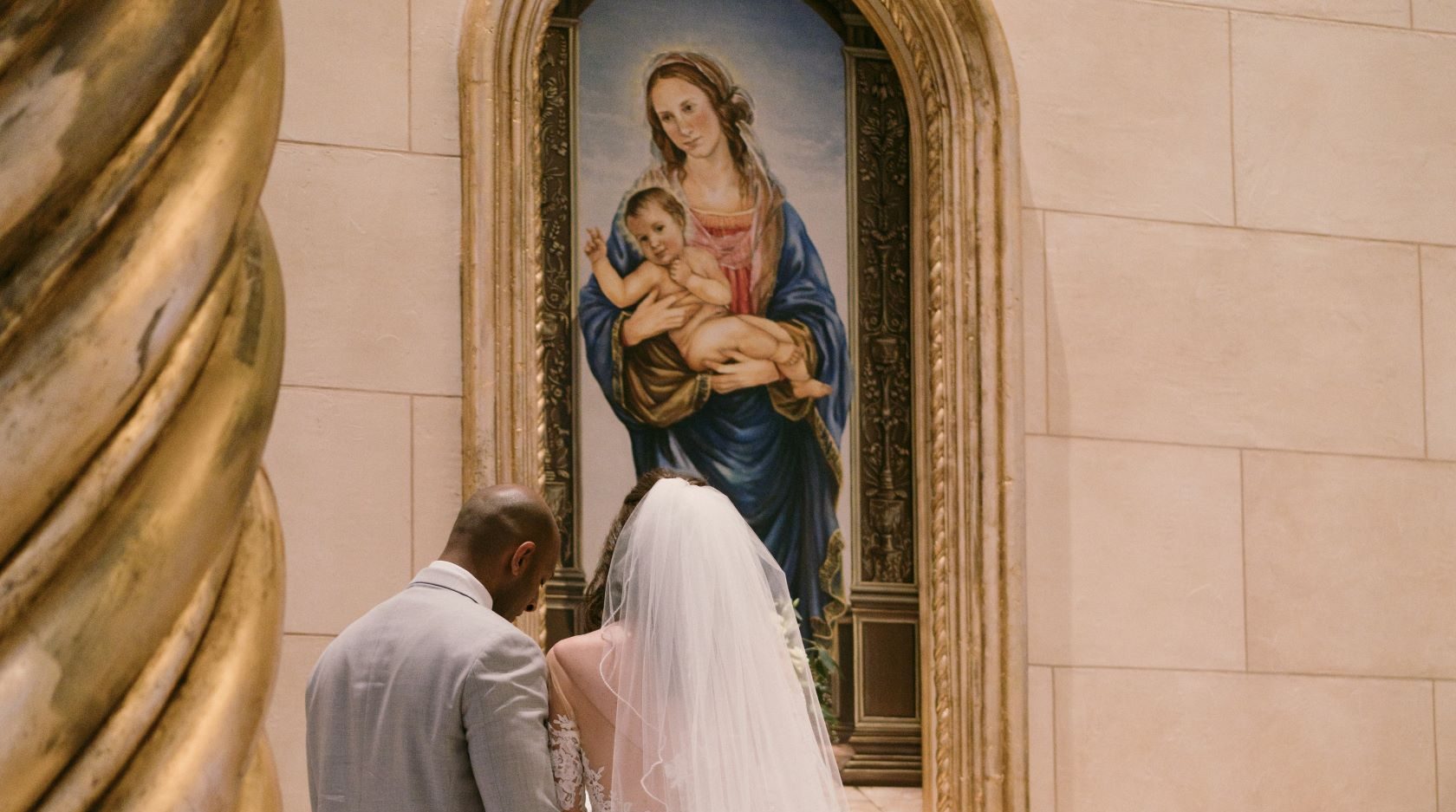They go out to a movie. She likes this one better than the one they saw two weeks ago. He doesn’t say much about it.
They are husband and wife, young enough in their relationship to find occasional surprises in the likes and dislikes of each other, and not realizing it will always be this way. They are good friends, coaxing each other to openness. What do you really think about that movie? Come on…I really want to know.
Thinkers and singers have explored friendship and love for thousands of years. There is the pursuit and the passion, and oh, yes, the steadfast promise.
“I want a woman, I want a lover, I want a friend,” sang Jackie Wilson in a 1959 rhythm and blues classic, naming in simple terms the multiple relationships of husband and wife.
It is reality: male and female we are created, and we seek out each other, to be lovers and friends, to reveal and to be revealed.
“What can be more delightful than to have some one to whom you can say everything with the same absolute confidence as to yourself?” Cicero wrote. “Is not prosperity robbed of half its value if you have no one to share your joy? On the other hand, misfortunes would be hard to bear if there were not some one to feel them even more acutely than yourself.”
They sit across from each other at the table, and learn of the day’s events, his and hers. Some days are uncertain, some days are a song. I may lose my job. I wish we could afford something better. If I get a promotion, are you willing to move? The baby kicked today!
Spouses and friends, they sort through such matters, open to each other and assured that come what may, their sorrows and uncertainties will be shared and supported, their joy will be doubled.
Children may come to take their total attention, or nearly so. But if friendship is to endure, couples will nurture this central relationship of their marriage and family. Through school and sports and growing up, married friends share their love with their children, not reducing their own, but expanding it. And among the greatest gifts the children receive is the experience of their parents’ love and friendship.
They talk in bed. She is worried about the bills. He says God will provide.
Fear and faith are revealed. The bills are real and so is the faith.
Faith and truth will overcome the fears of friends who have come to rely on each other – the strength of one to shore up the weakness of the other. Their strength is in the Lord, and in their own unity.
There are some things they don’t have to talk about. He leaves the table saw and other tools in the middle of the garage long after the project is finished. She forgets to give him a telephone message. Neither complains.
Friends know each other’s quirks. Perfection was never part of the promise they made each other, or possible.
Married friends need time together. It takes time to get to know each other’s failings and flaws, and it takes time to get over them.
She tells him he ought to take better care of his health. They both know her concern is genuine.
Married friends hold each other accountable, willing to speak the truth to each other, always forgiving but not excusing.
Do you see yourself in any of these vignettes? If you do, congratulations. If you don’t there are some steps to take to strengthen your friendship in marriage.
Author John M. Gottman says that happily married couples actually like each other, and they express their fondness and admiration for each other.
Remember when I locked my keys in the car and you rescued me? I am really happy you wanted to get involved in that project. I was touched when you were sensitive, or careful, tender, playful, lusty, understanding.
Happily married couples concentrate on the positive qualities of each other.
When we are apart, I often think fondly of my partner. I am really proud of my partner. My partner finds me sexy and attractive. When I come into a room, my partner is glad to see me.
Couples spend time together. “Spending time with your partner tells him or her in no uncertain terms, ‘You matter to me,’” writes Michele Weiner-Davis. “Time together gives people opportunities to collect new memories, do activities they enjoy, to laugh at each other’s jokes, to renew their love.”
She advises couples to plan and schedule time together, to make dates (and leave the kids at home), to not waste time figuring out whose fault it is you haven’t been spending time together, and that you don’t need a trip to a tropical island when you can walk around the block together.
They take a walk in the evening. At their age, time together no longer feels like a luxury; it has come to be the necessity they always knew it was. They talk about her day, his day, the kids and their careers, the appointment with a doctor and what it might mean, tomorrow’s hopes, the week’s demands. And for long stretches, they don’t need to talk at all.


 Time surely does fly by when you are very happily married. In the early days of our marriage my husband, Ric, and I imagined a life of friendship and love together, promising that we would never mention or even think of d______ (what so many people do to end their marriages). The word would not even exist in our vocabulary. And we have had so many wonderful years together. We wish all people were better prepared for marriage and chose more carefully the wife or husband they commit to “till death do us part” so every marriage would last and be the “happily ever after” it is meant to be.
Time surely does fly by when you are very happily married. In the early days of our marriage my husband, Ric, and I imagined a life of friendship and love together, promising that we would never mention or even think of d______ (what so many people do to end their marriages). The word would not even exist in our vocabulary. And we have had so many wonderful years together. We wish all people were better prepared for marriage and chose more carefully the wife or husband they commit to “till death do us part” so every marriage would last and be the “happily ever after” it is meant to be.











